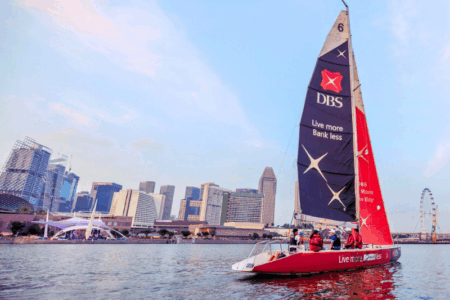Share buybacks often signal confidence from management that their company’s shares are undervalued.
In the first half of 2025, major Singapore firms have stepped up on repurchases as a way of returning capital to shareholders.
Here are three companies that have made this move.
United Overseas Bank (SGX: U11)
United Overseas Bank or UOB is one of the largest local banks in SIngapore with a full suite of banking services, mainly operating in Asia.
In May 2025, UOB had a buyback of over four million shares amounting to over S$144 million.
This aggressive repurchase is the largest among the other SGX-listed stocks.
At a S$58.4 billion market capitalisation, the shares that UOB bought back amounts to about 0.25% of the total market capitalisation value.
The average price paid per share of S$35.329 is also a 1.8% premium of UOB’s current share price at S$34.71.
The amount spent suggests that management sees the current market pricing as attractive and the stock is undervalued.
This move is also supported by the fact that UOB’s trailing price-to-book (PB) ratio is 1.19 which is close to its historical trading average of 1.13.
In other words, the buybacks were done at close to fair value.
DBS Group (SGX: D05)
Another local bank reporting large buybacks in May 2025 is DBS.
DBS had a buyback of 400,000 shares valued at about S$17.6 million.
The average price paid per share of S$44.070 is close to DBS’s current share price at S$43.93.
DBS’s PB ratio of 1.85 is also high compared to its historical trading range of around 1.39.
Hence, these repurchases imply that the shares were bought at premium valuation and the purpose of the buyback was not that of a value play.
Instead, this buyback was a way for the bank to return excess capital to shareholders.
DBS buying back shares reduces its equity which improves its return-on-equity ratio.
The buybacks also offsets share dilution from the firm’s employee share compensation, preserving book value-per-share ratio.
The effects of these ratios will show investors DBS’s commitment to shareholders and resilient operations.
Olam Group (SGX: V22)
Olam is a food and agribusiness company headquartered in Singapore.
The firm’s operations across the value chain from sourcing to distribution.
In May 2025, Olam reported a buyback of about seven million shares at over S$6.4 million.
The average price paid per share of S$0.926 is close to Olam’s current share price at S$0.92.
This signals that the management did not buy based on relative undervaluation but could reflect the company’s confidence in its intrinsic value.
This is important as Olam is currently in a transition period undergoing restructuring.
Olam’s current re-organisation plan is to divide its vast business portfolio into three distinct groups: Olam Food Ingredients, Olam Agri, and the rest of its businesses, dubbed the “Remaining Olam Group”.
This restructuring process has triggered moves such as the sale of 64.6% of its stake in Olam Agri to finance this plan, including allocating US$2 billion for deleveraging the Remaining Olam Group.
Therefore, this buyback could be a move to bolster investor confidence.
Get Smart: A signal to watch
Share buybacks can be powerful signals.
They return capital to shareholders and also reveal management’s conviction in the company’s long-term value.
While buybacks alone shouldn’t be the sole reason to invest, they’re worth paying attention to.
This is especially so when paired with solid fundamentals and undervalued metrics.
If you are looking for opportunities backed by confidence and capital discipline, these Singapore stocks may be worth a deeper dive.
When the market is unpredictable, where can you park your money with confidence? Our latest FREE report reveals 5 Singapore dividend-payers built to withstand global storms. Get it now and see what’s still worth holding.
Follow us on Facebook, Instagram and Telegram for the latest investing news and analyses!
Disclosure: Gabriel Lim does not own shares of any of the companies mentioned.





